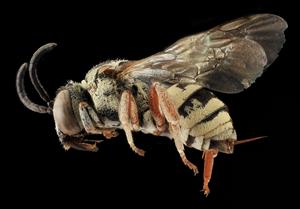Concrete and Abstract Nouns
All nouns serve to name a person, place, or thing. Depending on whether they name a tangible or an intangible thing, nouns are classed as being either concrete or abstract.
What is a concrete noun?
Concrete nouns name people, places, animals, or things that are or were physically tangible—that is, they can or could be seen or touched, or else have some defining physical properties. For instance:
- rocks
- lake
- countries
- people
- child
- air
- water
- bread
Proper nouns are also usually concrete, as they describe unique people, places, or things.
- Mary
- The Queen
- Africa
- my MacBook
- a Pepsi
What is an abstract noun?
Abstract nouns, as their name implies, name intangible things, such as concepts, ideas, feelings, characteristics, attributes, etc.—you cannot see or touch these kinds of things.
Here are some examples of abstract nouns:
- love
- hate
- decency
- conversation
- emotion
- aspiration
- excitement
- lethargy
Gerunds, verbs that end in “-ing” and function as nouns, are also abstract. For example:
- running
- swimming
- jumping
- reading
- writing
- loving
- breathing
These all name actions as concepts. Actions themselves do not have any physical properties—they cannot be touched, held, seen, smelled, etc., only the people or things doing or receiving the actions can. Thus, a gerund will always function as an abstract noun.
Countable Nouns vs. Uncountable Nouns
Both concrete and abstract nouns can be either countable or uncountable, depending on what they name.
Countable Nouns
Countable nouns (also known as count nouns) are, as the name suggests, nouns that can be counted as individual units.
Concrete countable nouns
Many concrete nouns are countable. Consider the following, for example:
- cup
- ambulance
- phone
- person
- dog
- computer
- doctor
Each of these can be considered as an individual, separable item, which means that we are able to count them with numbers—we can have one, two, five, 15, 100, and so on. We can also use them with the indefinite articles a and an (which signify a single person or thing) or with the plural form of the noun. For example:
Singular | Plural |
|---|---|
a cup | two cups |
an ambulance | several ambulances |
a phone | 10 phones |
a person | many people |
Abstract countable nouns
Even though abstract nouns are not tangible, many of them can still be counted as separable units. Like concrete nouns, they can take either a or an or be made plural. For example:
Singular | Plural |
|---|---|
a conversation | two conversations |
an emergency | several emergencies |
a reading | 10 readings |
an aspiration | many aspirations |
Uncountable Nouns
Uncountable nouns, on the other hand, are nouns that cannot be considered as separate units. They are also known as non-count or mass nouns.
Concrete uncountable nouns
Concrete nouns that are uncountable tend to be substances or collective categories of things. For instance:
- Substances: wood, smoke, air, water
- Collective categories: furniture, homework, accommodation, luggage
Uncountable nouns cannot take the indefinite articles a or an in a sentence, because these words indicate a single amount of something. Likewise, they cannot take numbers or plural forms, because there cannot be multiple units of them. For example:
- “I see (some*) smoke over there.” (correct)
- “I see a smoke over there.” (incorrect)
- “I don’t have (any*) furniture.” (correct)
- “I don’t have furnitures.” (incorrect)
(*We often use the words some or any to indicate an unspecified quantity of uncountable nouns.)
However, uncountable nouns can sometimes take the definite article the, because it does not specify an amount:
- “They’re swimming in the water.”
- “The homework this week is hard.”
Abstract uncountable nouns
A large number of abstract nouns are uncountable. These are usually ideas or attributes. For instance:
- Ideas or concepts: love, hate, news*, access, knowledge
- Attributes: beauty, intelligence, arrogance, permanence
(*Even though news ends in an “-s,” it is uncountable. We need this “-s” because without it, news would become new, which is an adjective.)
Again, these cannot take indefinite articles or be made plural.
- “He’s just looking for love.” (correct)
- “He’s just looking for a love.” (incorrect)
- “She’s gained a great deal of knowledge during college.” (correct)
- “She’s gained a great deal of knowledges during college.” (incorrect)
As with countable nouns, though, we can sometimes use the definite article the:
- “I can’t stand watching the news.”
- “Can you believe the arrogance he exhibits?”
Nouns that are both countable and uncountable
The general idea of countable versus uncountable nouns is simple. If something can be counted with numbers, then it is countable, as the name suggests; if not, then it is uncountable.
However, words in English often carry a number of different meanings, and these can affect whether a word will be considered countable in one instance compared to another.
Take, for instance, one of our previous examples regarding the abstract noun love:
- “He’s just looking for love.”
As we’ve already said, this is a clear instance of an uncountable noun. However, the word love can also mean “a person or thing one loves.” When carrying this particular meaning, love is countable. For example:
- “I have two loves in my life: my wife and my work.”
Likewise, many things we would normally consider to be countable have meanings that render them uncountable. For instance:
- “How many stones did they use to build this wall?” (countable—This refers to individual stones.)
- “This tablet is made of stone.” (uncountable—Stone in this sense refers to the material that composes the tablet; substances and materials are uncountable.)
As you can see from these two sets of examples, concrete and abstract nouns can be both countable and uncountable, depending on their specific meaning in a sentence. There are far, far too many to list here; you will simply have to know which meaning a word carries in a given context and decide whether that meaning makes the noun countable or uncountable.
Get all volumes of The Farlex Grammar Book in paperback or eBook.

